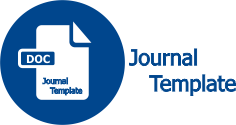PENGARUH MODEL PEMBELAJARAN KOOPERATIF TIPE STAD (STUDENT TEAM ACHIEVEMENT DIVISION) TERINTEGRASI MODEL PEMBELAJARAN GENERATIF TERHADAP KETERAMPILAN PROSES SAINS DAN HASIL BELAJAR PESERTA DIDIK KELAS X SMAS MAKASSAR RAYA
(1) Universitas Negeri Makassar
(2) Universitas Negeri Makassar
(3) Universitas Negeri Makassar
(*) Corresponding Author
DOI: https://doi.org/10.26858/cer.v0i0.7612
Abstract
ABSTRAK
Penelitian ini merupakan penelitian eksperimen semu yang bertujuan untuk mengetahui pengaruh penggunaan model pembelajaran kooperatif tipe STAD (Student Team Achievement Division) terintegrasi model pembelajaran generatif terhadap keterampilan proses sains dan hasil belajar peserta didik kelas X SMAS Makassar Raya pada materi larutan elektrolit dan non elektrolit. Menggunakan desain Pretest –Postest Control-Group Design. Populasi dalam penelitian ini adalah seluruh peserta didik kelas X SMAS Makassar Raya. Sampel diperoleh secara random sampling dan terpilih kelas XA IPA sebagai kelas eksperimen dan kelas XB IPA sebagai kelas kontrol. Hasil penelitian diperoleh deskripsi rata-rata keterampilan proses sains kelas eksperimen dan kelas kontrol masing-masing adalah 69,6 dengan standar deviasi 13,24 dan 50,8 dengan standar deviasi 13,1. Rata-rata nilai N-gain indikator keterampilan proses sains sebesar 0,622 dan 0,444 berada pada kategori sedang. Disimpulkan bahwa terdapat pengaruh penggunaan penggunaan model pembelajaran kooperatif tipe STAD (Student Team Achievement Division) terintegrasi model pembelajaran generatif terhadap keterampilan proses sains dan hasil belajar peserta didik kelas X SMAS Makassar Raya pada materi larutan elektrolit dan non elektrolit.
Kata kunci: STAD teintegrasi generatif, keterampilan proses sains, hasil belajar, elektrolit dan non elektrolit.
ABSTRACT
This study is a study that aims to determine the use of STAD (Student Team Achievement Division) cooperative learning models integrated generative learning models on the process and learning outcomes of students of class X SMAS Makassar Raya on electrolyte and non-electrolyte material Pretest – Post Control research design Group Design. The population in this study were all students of class X SMAS Makassar Raya consisting of 2 classes. sample is done randomly and class XA IPA as the experimental class and class XB IPA as the control class. The results obtained by the description of the average process performance of the experimental class and control class is 69.6 with a standard deviation of 13.24 and 0,622 with standard deviation 13.10. the average N-gain indicator of the process performance 0.622 and 0.444 in the medium category. The agreed matters included the use of STAD (Student Team Achievement Division) cooperative learning models integrated with the generative learning model on the learning process and results of students of class X of SMAS Makassar Raya on electrolyte and non-electrolyte materials.
Keywords: STAD integrated generative, process skills, learning outcomes, electrolytes and non-electrolytesArticle Metrics
Abstract view : 237 times |Refbacks
- There are currently no refbacks.
Jurnal dipublikasikan oleh: Program Studi Pendidikan Kimia
Program Pascasarjana Universitas Negeri Makassar
Alamat JL. Bonto Langkasa Gunung Sari Makassar, 90222
Kampus PPs UNM Makassar Gedung AD ruang 406 Lt 4, Indonesia.Phone 082393643737/085145825311/085242228678
CER UNM Indexed by:

Chemistry Education Review (CER) is licensed under a Creative Commons Attribution-NonCommercial 4.0 International License.










